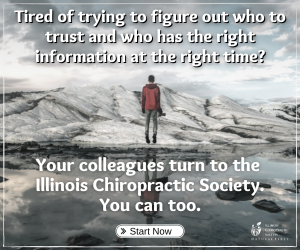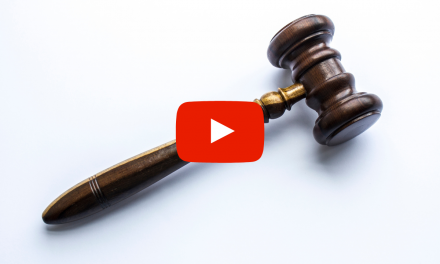
Are Your Spinal Screening Tests Legal?

Editor’s Note: This article deals with a spinal screening as it relates to federal law and the Office of Inspector General. Additionally, the article deals with all screenings whether performed by the physician or unlicensed staff. The ICS has another article that covers Illinois law and screenings performed by staff where the doctor is not present. Please review that article in conjunction with this article. View article here.
On August 10, 2009, the Office of Inspector General (OIG) issued an advisory opinion (# 09-11) pertaining to free blood pressure screenings for beneficiaries participating in federally funded programs. The opinion may have an impact on how you conduct screening tests for the public, such as spinal screening tests.
When an entity, such as a hospital, physician or an insurance company is unsure as to the legality of certain actions or arrangements, they may seek an advisory opinion from the OIG. In this instance, an advisory opinion was sought regarding the provision of free blood pressure screenings to walk-in visitors at a hospital. The hospital inquired whether the actions of their blood pressure screenings would constitute grounds for the imposition of sanctions under the civil monetary penalty provision prohibiting inducements to beneficiaries, section 1128A(a)(5) of the Social Security Act, or under the exclusion authority at section 1128(b)(7) of the Act, or the civil monetary penalty provision at section 1128A(a)(7) of the Act, as those sections relate to the commission of acts described in section 1128B(b) of the Act, the Federal anti-kickback statute.
While the opinion only pertains to the circumstances presented by this hospital, the advisory does pose at least discussion as to the legality of spinal screenings and other preventive screenings that may be utilized by the chiropractor or in the chiropractic office.
Gifts and Inducements
Editor’s Note: Originally posted on 6/1/2010. Updated with OIG’s 12/7/2016 Statement Regarding Gifts of Nominal Value (full text here).
The anti-kickback statute makes it a criminal offense knowingly and willfully to offer, pay, solicit, or receive any remuneration to induce or reward referrals of items or services reimbursable by a Federal health care program. Where remuneration is paid purposefully to induce or reward referrals of items or services payable by a Federal health care program, the anti-kickback statute is violated. The statute attributes criminal liability to both parties involved in the kickback arrangement. For purposes of the anti-kickback statute, “remuneration” includes the transfer of anything of value, directly or indirectly, overtly or covertly, in cash or in kind. For enforcement purposes, the OIG has deemed that services cannot exceed $15 per item of service or $75 in the aggregate annually.
The statute has been interpreted to cover any arrangement where a purpose of the remuneration was to obtain money for the referral of services or to induce further referrals. Violation of the statute constitutes a felony punishable by a maximum fine of $25,000, imprisonment up to five years, or both. Conviction will also lead to automatic exclusion from Federal health care programs, including Medicare and Medicaid. Where a party commits an act described in section 1128B (b) of the Act, the OIG may initiate administrative proceedings to impose civil monetary penalties on such party under section 1128A(a)(7) of the Act. The OIG may also initiate administrative proceedings to exclude such party from the Federal health care programs under section 1128(b)(7) of the Act.
Section 1128A(a)(5) of the Act (the “CMP”) provides for the imposition of civil monetary penalties against any person who gives something of value to a Medicare or state health care program (including Medicaid) beneficiary that the benefactor knows or should know is likely to influence the beneficiary’s selection of a particular provider, practitioner, or supplier of any item or service for which payment may be made, in whole or in part, by Medicare or a state health care program (including Medicaid).
President Obama has called for improving prevention and management of chronic conditions by investing in prevention and wellness programs. The chiropractic model has always called for prevention and wellness to aid in detection of disease and conditions that will result in decreased function of the body. The actions taken in the preventive practice of screenings may violate Federal health programs covering the elderly, poor and disabled.
Under the actions involved in the advisory opinion, the hospital provided free blood pressure checks to visitors, some of whom are Medicare and Medicaid beneficiaries. The unnamed hospital did not indicate the fair market value of these screenings; however, the value of the multiple screenings could exceed $75, even if the value of single screening does not exceed $15.
For any type of free care offered by a provider, however, regardless of whether it is preventive care as defined in the regulation, it is necessary to determine whether the free care promotes the provision of other, non-preventive care reimbursed by Medicare or Medicaid. In this advisory opinion, the OIG based their opinion on whether providing the free service would induce a patient to obtain other services provided by that entity. As an example, if the hospital makes appointments for individuals with one of its physicians, offers individuals discounts for additional covered services, or otherwise promotes its particular programs, an inference may be drawn that the free screening test was an inducement to choose the hospital as a provider of other services. The screening tests would be permissible if the hospital provided an individual who tests positive for a chronic condition, with general information or literature and a recommendation that the individual contact his or her personal physician.
Before taking part in any marketing or screening activities, it is advised that the physician obtain legal advice before proceeding. It is recommended that the policies pertaining to these screenings are well documented in a compliance manual. The OIG recommends a compliance manual for policies pertaining to Federal and state programs. This manual should not be confused with the HIPAA manual. If called into question the presence of a Compliance Manual will be used as a mitigating factor against further sanctions and fines.
Dr. Mario Fucinari is a full-time practitioner in Decatur, IL. He is a Certified Insurance Consultant, Certified Medical Compliance Specialist and a Certified Medical Compliance Instructor. Dr. Fucinari also is on Logan College of Chiropractic Faculty and Post-Graduate Faculty. For further information, you may contact Dr. Fucinari at Doc@Askmario.com



















